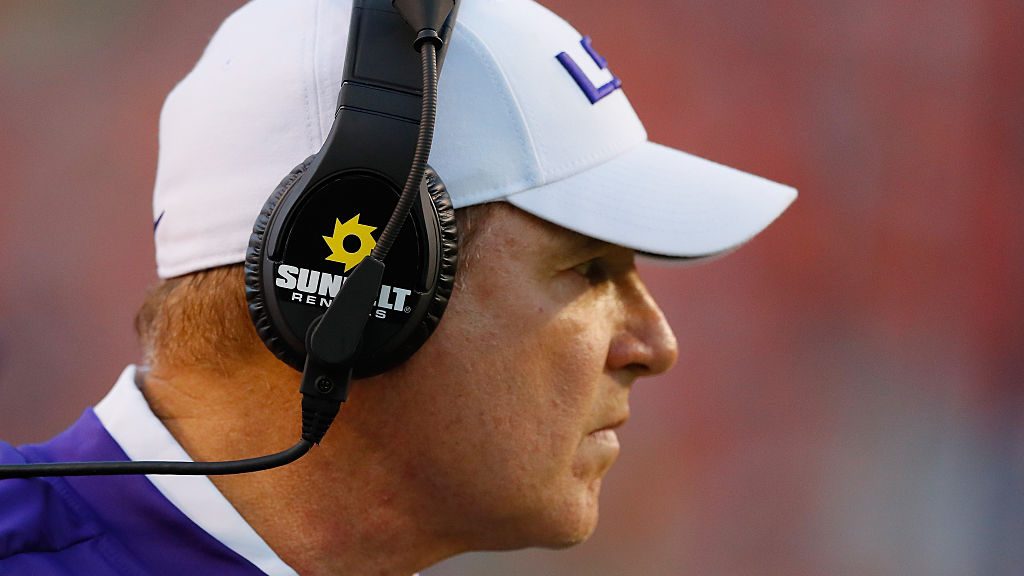In 2013, Les Miles was one of the biggest names in college football, if not all of sports. Under his reign as head coach, the LSU Tigers made two national championship game appearances, including one win, and were constant fixtures in the Associated Press Top 25. That year, Miles signed a seven-year contract extension paying him $4.3 million per year, and the Tigers posted a respectable record of 10-3, making it to and winning the Outback Bowl. In the media, Miles was largely portrayed as a lovable weirdo, best known for chewing on grass.
But as more information has been reported about LSU's years of failing to take reports of sexual misconduct and intimate-partner violence seriously, including cases that involved football players, it was hard to ignore the unsaid questions of what did Miles do and what did he know. Late last week, a few answers to those questions started to emerge. The Advocate reported that Miles had reached a secret settlement with a former student who said that Miles had harassed her, while USA Today reported that an internal investigation was done in 2013 into information that Miles had "sexually harassed and made sexist comments about student workers."
The settlement, per the Advocate, was reached about a decade ago. Three sources told the publication that an intern with LSU athletics said Miles had hit on her. When asked by the Advocate, Miles said "that’s not true," but he would not directly talk about the settlement. His lawyer, Peter Ginsberg, also did not deny the existence of the settlement.
As for the 2013 investigation, little is known about it publicly because LSU has refused to release any copies of it. USA Today submitted a public records request for the report after learning of its existence, but the university refused to release a copy. In response, USA Today sued LSU in East Baton Rouge District Court, saying the documents should be made public. Both Miles and LSU are fighting against their release. District Court Judge Chip Moore "indicated that the bulk of it should be made public," USA Today reported, but for now the documents remain under seal.
There is one tiny detail that has come out about what was happening at LSU in 2013, from the Advocate's Andrea Gallo, who talked to LSU's former human resources director A.G. Monaco. Monaco recalled to Gallo a phone conversation he had with Vicki Crochet, a lawyer for Taylor Porter, the firm that conducted the 2013 investigation:
And then she told him that a student whom Miles was accused of harassing had missed a class quiz and been given a failing grade, and Monaco needed to contact the professor so that the student could retake it, he remembered. Monaco disagreed on both counts: He said he would not keep the investigation a secret, nor would he instruct a professor to rescind the failing grade.“I started laughing because you just don’t do that,” Monaco said. “I said, ‘I’m going to tell the provost. And I’m going to tell my boss.’ And we did.”
Monaco reported what he had been told up the chain of command, informing then-LSU Provost Stuart Bell as well as then-vice chancellor for budget and planning Robert Kuhn of the phone call. Monaco recalled that both Bell and Kuhn agreed that action was needed and they informed the president's office but, he told Gallo, "When we moved it up to the president’s office, the whole thing disappeared."
Three years later, Miles would be fired by LSU for the sin of opening the college football season at 2-2. But there's always work around for a man with a BCS Championship trophy, if he wants it. Miles is currently coaching football at Kansas and, so far, it doesn't appear that anything that happened in 2013 was a factor in his leaving LSU. It's always worth remembering that losing—not exploiting your workforce, not downplaying reports of sexual assault, not giving a second chance to the strength coach with a reputation for being a racist bully—is the only true unforgivable sin of college sports.






